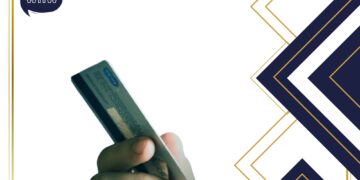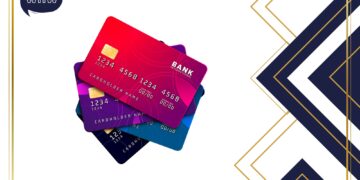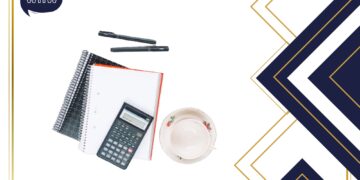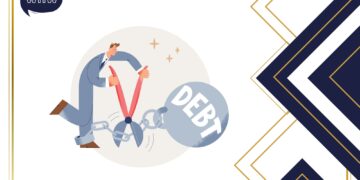How to best use a credit card

Enter the world of glory cards, where a small piece of plastic can contain a significant financial impact. This book explains how to use glory cards correctly as well as acts as a compass for you. Examine the dos as well as don’ts to turn this economic instrument as of a burdensome source of stress to a valuable ally. Knowing the tones in the credit world gives you the advantage of confidence as you go across this financial land. Welcome to a journey where careful credit card use and financial empowerment go hand in hand.
1. Understanding credit cards
- More than just plastic
Discover the true nature of credit cards they are more than just pieces of fake; they are strong financial tools. Credit cards allow you to use money from a bank up to a certain amount in addition to being a means of payment. But exercise this power comes with responsibility. Get the basics down before moving on to strategies. It is essential to comprehend the details of your card in order to make the top utilize of it. It’s about understanding the financial complexities and establishes an equally beneficial connection with your credit card, not simply about transactions. Remember that mastery starts with understanding the power and potential drawback of this financial instrument as you set out on this journey.
2. Choosing the right card
- Matching features to your lifestyle
Financial union, in which each swipe counts toward optimizing the advantages customized to fit your unique lifestyle. Make an informed choice since the correct card will reflect your financial style. In the wide world of credit cards, variety is king. Not every card is made from the same material. There is a plethora of potential available in the market, each with special characteristics and benefits. The secret is to select a credit card that complements your spending habits and way of life, whether that means cash back incentives or travel perks. This choice procedure is the starting point for a mutually beneficial partnership with your credit card. Aligning the card’s options with your tastes guarantees a harmonious.
3. Establishing a budget
- You’re financial compass
Power the power of a well-organized budget to maximize the benefits of your credit card. Even though credit cards have significant spending power, they can quickly turn into a economic maze if you don’t have a budget. Create a financial compass by setting up explicit monthly spending plans and classifying savings, discretionary expenditures, and necessities. This fiscal structure should be easily incorporated by your credit card, serving as an enabler rather than a barrier. The cornerstone of right credit card use is a well-aligned budget, which guarantees that each transaction is a calculated activity that stays within the parameters of your financial plan. As you plan through the ever-changing terrain of credit card expenses, let your budget serve as the mask of fiscal care.
4. Paying in full
- The golden rule of credit card usage
Accept the credit card mastery golden rule and pay off your full bill each month. This important idea builds a good credit historic in addition to protecting you from interest charges. Giving in to the minimum payment trap might put you in a debt cycle from which it is difficult to break free. Paying off your total load helps you support your creditworthiness, which opens doors to favorable future chances, and navigate the financial waters with care. Use this golden rule as a fire to help you steer clear of the negative effects of debt growth and toward appropriate credit card use and a solid financial foundation.
5. Understanding interest rates
- The cost of borrowing
Understanding interest rates becomes vital in the complicated world of credit card usage if complete payment proves to be elusive. These rates include the cost of borrowing, and lack of knowledge can result in costly mistakes. Long-term balances incur increasing fees, and interest compounds over time to increase the amount owed. Choosing wisely when and how much to borrow turns into a calculated move. By having a thorough understanding of interest rates, you may use credit cards responsibly and avoid the debt increase effect. Make sure that every borrow decision you make is in line with your long-term financial well-being by using information as your guide as you navigate the financial landscape.
6. Mastering rewards program
- Turning spending into benefits
Discover the possibilities of credit card rewards programs, where purchases result in real benefits like cash back or attractive vacation bonuses. By becoming proficient in these programs, you may increase the value of your spending and transform ordinary transactions into chances to save money or have new experiences. But be careful not to yield to the attraction of overpaying on incentive alone. The goal is to well income while avoiding needless debt accumulation. You can get the most out of your credit card by signal the right balances between using it for purchases and accruing rewards. This will turn regular purchases into a means of obtaining worthwhile benefits plus real cost savings. Instead of using your understanding of rewards programs as a means to invite unjustified debt, let them be an asset for your financial well-being.
7. Avoiding cash advances
- A costly convenience
Watch out for the attraction of cash advances, which appear to be a convenient choice but come with a heavy price tag. Taking out cash withdrawal from your credit card is expensive and frequently incurs high fees and interest rates that become active right away. This pricey ease should only be used in emergency situations because frequent use might quickly result in financial risks. The long-term financial burden is concealed by the seeming simplicity of obtaining fast finances. Be careful and think of other ways to meet your wants for cash to protect your finances. In the complex world of credit card usage, let the cautionary message serve as your guide to avoid the costly temptation that cash advances present.
8. Monitoring your statements
- Care is key
Examine your credit card statements on a regular basis to increase your level of financial awareness. This routine acts as an important checkpoint, allowing you to monitor expenditure trends, identify false transactions, and quickly address any mistakes. Being cautious is essential to safeguarding your financial health because prompt detection of irregularity guarantees prompt resolution. A practical measure to safeguard the truth of your financial records and defend yourself against possible fraud is to review each statement. You strengthen the defenses surrounding your financial stronghold and provide yourself the ability to keep an accurate and transparent record of your credit card usage by developing this habit. Let alertness serve as your shield, safeguarding your financial domain.
9. Building a good credit history
- You’re financial reputation
Start the process of using credit cards responsibly to establish a solid credit historic. Your credit standing depends on this crucial action, since a good credit historic is the foundation for all future financial transactions, such as applications for mortgages and auto loans. Consistently using credit cards responsibly is the first step toward building a positive credit historic. Every transaction turns into an investment in your status’s financial narrative. You can improve your creditworthiness and gain access to favorable interest rates and financial opportunities by building a solid credit history. Think of your credit card as a brush, and every purchase as a brushstroke that goes toward creating the painting that is your credit name.
10. Dealing with debt
- A pragmatic approach
Adopt a practical approach to deal with credit card debt. Make paying off high-interest debt your first priority by looking into solutions like transfer balances to lower-interest credit cards. If required, get expert financial guidance to help you manage the challenges of debt settlement. By being proactive and strategic, debt can be avoided before it becomes a blocked barrier. By taking forceful measures to resolve the problem, you take back control of your financial situation and pave the way for debt-free life. Recall that taking a practical approach to debt management makes it a simple procedure that enables you to confidently and purposefully traverse the complexities of your financial path. Every practical step you take will get you closer to debt release and financial independence.
11. Securing your card
- Guarding against fraud
It is key to protect your credit card against fraudulent activity. To keep yourself safe, change your PIN frequently, only share your card information on secure websites, and report lost or stolen cards right away. Being vigilant is the first line of defense against fraudulent activity and keeps your financial castle safe from impersonation attempts. By taking these protective steps, you strengthen your overall financial security in addition to safeguarding your credit card. Keep an eye out for threats and use every move as a shield to protect the truth about your financial holdings and your peace of mind in the ever-changing world of credit card usage.
12. Knowing your credit score
- A financial report card
Your credit score displays your creditworthiness and functions as a financial report card. Verify its truth on a regular basis to identify areas that need work. In addition to being an indication of sound financial behavior, a high credit score opens doors to favorable interest rates and a variety of financial options. Keep yourself informed as your credit score influences future activities and guarantees a strong basis for your financial security. It also affects the course of your financial journey.
13. Credit card custom
- Careful spending for long-term success
Using a credit card responsibly is an art in the grand picture of personal finance. Effective credit card management is built on prudent spending, timely repayment, and planned utilization of benefits. By following these guidelines, you can ensure your financial future in addition to utilizing the advantages of a credit card.
Conclusion
A credit card is one of the most practical items among the many financial tools available. Whether it moves you forward or turns into a weather-related storm depends on how you maneuver its waters. Your credit card becomes more than just a piece of plastic when you know how to use it well, know when to use it, and push clear of potential traps. May your credit card serve as a source for you as you set out on this trip?





